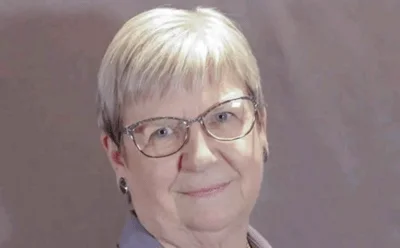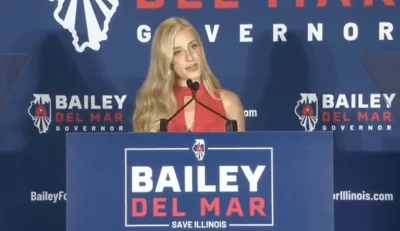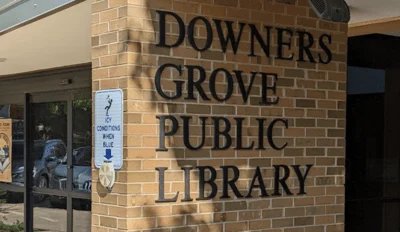Illinois' 6th Congressional District issued the following announcement on May 12.
U.S. Representative Sean Casten (IL-06) along with House Democratic Policy and Communications Committee (DPCC) Cochair Debbie Dingell (D-MI), Haley Stevens (D-MI), and Sharice Davids (D-KS) held a call with regional reporters today as House Democrats are demanding support for the region’s frontline public service workers in next Coronavirus aid package.
Midwest Democrats are fighting for critical aid that state and local governments need to pay healthcare workers, police, firefighters, teachers and other frontline public service workers during the crisis.
But, Republican Senate Majority Leader Mitch McConnell – who blocked such aid in the most recent package – recently said he believes states should be forced to file bankruptcy, putting the livelihoods of frontline public service workers at risk. Last month, President Trump indicated he would support funding for state, tribal and local governments in the next package. But soon after, the President indicated he may be backtracking on that promise.
Midwest Democrats are holding the President accountable to his commitment and fighting to ensure the region and our workers have the support we need amid the Coronavirus pandemic.
Casten said, “Every day, our police, firefighters, and EMS put their lives on the line to keep our communities safe. Now, as COVID-19 compounds the threats they face, we have an obligation to protect them. I’m proud to join my Midwestern colleagues in calling for increased support for these heroes in Congress’s next Coronavirus aid package.”
“Frontline public service workers, from police and fire to healthcare and EMS, are putting their lives at risk every day during this pandemic. The next aid package must put families and communities first by ensuring that public services, and the dedicated workers who provide them, are protected,” said Dingell.
“Cities in Michigan’s 11th District are hurting, and we have a duty to provide fiscal relief to communities that have been hit hard by this pandemic,” said Stevens. “I am working to ensure that frontline public service workers can continue to serve their communities, and have the resources and equipment they need to do so safely and effectively. Congress should work to pass desperately-needed aid for state and local governments as soon as possible.”
“Kansans know just how important it is to protect our state and local governments – especially now as we rely on our public sectors workers like firefighters, police officers, and health care workers more than ever. Congress must provide direct, flexible aid in the next COVID-19 response package, so we can pay our frontline workers and continue to provide the services Kansans depend on,” said Davids.
Last month, the House passed its third bipartisan emergency package. The original proposal from the White House and Republican Senate Leader Mitch McConnell did nothing to ensure our local main street businesses can access the support they need. It left hospitals and healthcare workers out. And it failed to include testing we know is so desperately needed to reopen our economy safely.
But Democrats insisted on changes and we secured critical provisions for the people of the Midwest:
- For small businesses: Democrats strengthened the Paycheck Protection Program with $310 billion in additional funding, with $30 billion reserved for community-based lenders, small banks and credit unions and $30 billion for medium-sized banks and credit unions. Democrats also expanded small business support beyond PPP by securing $50 billion for SBA disaster lending, translating into more than $350 billion in loans and $10 billion in SBA disaster grants. And Democrats included strong protections to ensure that our nation’s farmers have access to this vital assistance.
- For hospitals and health care workers: Democrats secured $75 billion to provide resources to the frontlines, including Personal Protective Equipment.
- For all Americans: Democrats secured $25 billion for testing, which is the key to reopening the economy safely.
Original source can be found here.





 Alerts Sign-up
Alerts Sign-up